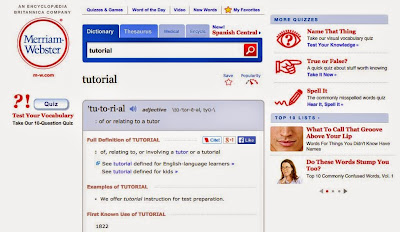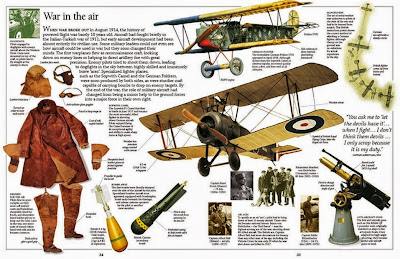Is this the perfect 'Set'?
It feels both odd and appropriate to be writing this at 01.00am and to be treating my first thoughts to mu OU blog rather than anywhere else: there's greater continuity here than anywhere else and my musings may find a readership through any current MAODE students (I met be one again in 2017 to take on the new module on research into online learning).
Context: I am once again a student. I am at the University of Wolverhampton, part-time MA. We learn via a lecture or two with other presentations in a group of 22 once a month. We have a 'blended' component in the form of a labyrinthine and ugly platform that looks more 1999 that 21st century. Think long lists of clickable options in to great a variety of colours: a list lifted from print and jazzed up. Nothing smart about it. No surprises that no one uses it; not the blog, not the Facebook group.
I remain embroiled in learning, and learning online. I am a mentor on a course here at The OU, a mentor for Coursera, and even (face to face seeing students), a mentor at The School of Communication Arts, London. And a swimming coach! In a variety of ways a 'role play' a real educator for want of a proper teaching job.
Serendipity has me at the home of my 91 year old father-in-law. Considerably less active than he once was, he still spends his day either reading from an iPad, or, with considerable difficulty, writing and reading emails. (He is blind in one eye with severely limited peripheral vision in the other). Reading only from a screen about 7 or 8 words fill the screen. A young granddaughter is researching a piece about being a 'war child'. Zbigniew Pelczynski was 13 1/2 when the Germans invaded Poland. He revealed something about learning that I had not heard before.
You'll soon understand the relevance to learning and the relevance of posting it here: I interviewed Dr Pelczynski on the Oxbridge Tutorial system in relation to learning and the MAODE. He is a former Oxford Philosophy Tutor (Hegel) ... and East European Politics, and the founder of 'The Schools for Leaders' in Poland and other East European countries. Has he retired? Probably. He published his last book four or five years ago and made his last trip to Poland about three years ago.
One of his grandchildren, just started secondary school, had the following questions for him.
1). How old were you and your brother at the beginning of the war?
The war began 1st September 1939. I was then 13 1/2, and my brother was 12.
2). How did the war change everyday life e.g. did shops close?
Shops did not close and in many way life went on as before, however, with time food became more and more scarce and expensive. People who were poor had a very hard time.
3). What did you do for family entertainment?
(I have read that in Poland things like cinema and football clubs were banned)
Well, entertainment was very much limited to the family and especially to birthday, christmas and Easters which in Poland are celebrated in a very big way. Cinemas were open, but the films were controlled so that one was only able to see that the occupiers, the Germans, wanted us to see. There were some interesting German films, but most of them were propaganda. I remember Jude Ze. about a a cruel Jew in the middle ages who caught children who cheated everybody and murdered children for blood. There was a tail that the Jews used the blood of Christian children for Jewish feasts. This was meant to make us feel very hostile to the Jews who were being greatly persecuted by the Germans at the time, put into Ghettos and later sent to extermination camps.
(The film he refers to is 'The Eternal Jew' = https://en.wikipedia.org/wiki/The_Eternal_Jew_(1940_film))
There was no theatre, just light music entertainment, but only for the German soldiers who were stationed there and German officials. There were however some concerts in cafés, specially on Sunday at lunchtime which were very popular.
Sport. The Germans didn’t allow any sport. All football pitches, running tracks and swimming pools were taken over by the Germans and used by their own soldiers or recovering soldiers.
You were allowed to play handball or netball at home in your yard. Not allowed to play at school. Not allowed to kick a football about a schoolyard. So the only thing we did was play pingpong at school. In the school there were long corridors in there were several tables and you’d sign up to be allowed to play and there would be competitions. There was the Vistula in Warsaw, where we went swimming or canoeing or in a small sailing boat.
4. Did you have rationing coupons for food & clothes?
There were no clothes coupons, but there were certainly rationing coupons for food. They would change from year to year, even month to mont and they kept being cut again and gain. Each family was registered in a particular greengrocers shop and you went to buy your rations once a week. However illegally food was imported from the countryside and sold under the counter in the same shops or others shops or in open market, but the price was very high compared to the official regulated price of the rations.
Things were particularly during holidays when it was very difficult to get the various delicacies, for example ham for easter, or chicken or goose for Christmas.
5. How did things change for children in primary school?
There was virtually no change. Some of the text books were banned as they were thought to be too patriotic of ante-German.
6. How did things change for children in secondary school?
This was changed. The Germans did not allow any education whatsoever after the age of 16. And only if the secondary education was combined with ‘Fachschulen’ - that is trades school. I for example went to a school that was supposed to train electricians, one of my friends went to carpentry school and another went to gardening school. But very little time was spent on these trades, say a day a week, the other days were much similar to what we had before the war. The exceptions, no foreign language was allowed except German, Latin was banned, Polish history was banned. However, very early in the war, the teachers started organising secret courses called ‘sets’ where five children and one teacher taught Latin, French and Polish history. After age 16, moving to the equivalent of A’Levels there was no school education at all in the ordinary way. Those who continued with these sets of 5+1, would say meet on a Tuesday, and have 3 hours being taught Polish language and Geography, then another teacher would come and teach say Physics … so in this way, instead of studying in large classes, we had what you might call seminars. It was possible, the atmosphere was very informal, made it possible to ask question and disagree. This education was illegal. If the Germans had discovered these the teacher would have been arrested and sent to prison.
I went on like this until 1943 when I was 17 1/2. The Polish Secondary education was modelled on the French and German with four or more subject examination, I did Polish Language, German Language, Latin and Trigonometry. I passed this examination.
7. What age did you start going to school in secret, tell me about what it was like.
See above
8. How did children help in the war effort?
It very much depended on your age. Children who were very young did not participate at all, expect perhaps taking secret newspapers from one family to another. The Polish Secret army told their story of what was happening in the world, otherwise we were limited to German propaganda. Later on you could join a secret scout movement. You were trained in what was known as ‘little sabotage’ for example, painting slogans on public places, ‘Hitler Kaput’ meaning ‘Hitler is finished’. On one occasion we went to church on Easter morning very early, and the whole of Warsaw was covered in these ante-German slogans and symbols of the Polish Resistance (a symbol of hope).
Most Poles are Catholic. During the war people went to church for services and holidays and the Germans didn’t interfere with that. Some of the priests when they preached sermons put in some references to Poland was not free, but the time would come when it would be free again. If caught as there could be spies in the congregation they would be arrested and sent to a concentration camp.
I and my younger brother joined the Resistance Movement in 1943. Even before that he decided to help some friends in the resistance: the people who formed little units in the forests and attacked the Germans, and stole their weapons, and blew up their cars. Kazik had a friend who was very active, and this friend wanted to store submachine guns somewhere so Kazik agreed and would store them in our grand piano which was never used because neither he nor I played. I got suspicious because this friend would come and visit with a violin case. One day, this friend came, and Kazik locked himself in the sitting room, and I listen and realised they were putting something in the piano. I looked and there was a brand new Sten-gun in the grand piano.
When I was older, 18 1/2 I joined the Resistance Movement and trained as a soldier. We were often asked to store hand-grenades and rifles. We would attach a rifle to a small fruit tree and put straw around it.
9. What age did children join the Home Army?
There was some military training in the Scout Movement, at 14 or so, maybe 12. Then first of all they were involved in ‘small sabotages’; and then given military training so in 1944 they were involved.
You joined the underground, the secret Military movement, when you were 16. When the uprising broke, out and the young people were the bravest of all. One friend of mine, who was 16, was awarded two medals.
Distributing leaflets and illegal leaflets.
Training in the home army, we must in five + one, Meet in someone’s house, once a week, and a military instructor would come and tell us how to use a gun, or blew up houses.
Once a month there was a trip to the nearest forest. It was easy to go for the weekend. Military training was much more serious here, you played at setting an ambush, or crawling under barbed wire or attacking a position. Amazing that the Germans never discovered what was going on.
The point that had me wake in the dead of night having mulled this over was the importance to him of 'the set', or seminar, what in fact became for him the lifelong love for an commitment to the 'tutorial' : not a seminar, a class of students, but a small group, relaxed with tea, coffee (or sherry), reading over each other's essays for the week, being able to falter, make mistakes, received praise and correction.
This works. I believe it works online too. I have had plenty of experiences of it on OU modules where from my tutor group a small 'break-out' group forms. These are never exclusive, but rathe a handful of people usually three or four, who form an affinity and begin to confer, converse and meet regularly online to discuss the course and its progres.
I recommend it. Blog, Use Facebook or LinkedIn or Google HangOuts. Make use of platforms offered by The OU. Be part of a group. Form a group, or what I will now call a 'Set' or perhaps, in Polish 'Zestaw'.







